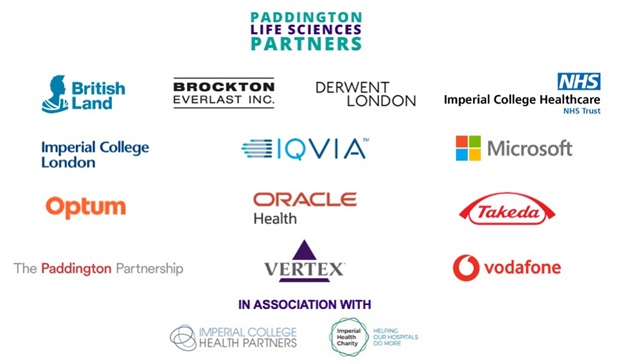It is an inaugural partner in Paddington Life Sciences Partners which intend to promote health, wealth and wellbeing
Partners drawn from the NHS, industry, community and academic organisations are forming a new life sciences cluster around St Mary’s Hospital in Paddington, London.
Paddington Life Sciences was announced last year by Imperial College Healthcare, the NHS trust that runs St Mary’s. The hub wants to more closely link community and healthcare, to improve health and generate “social and economic value”.
There is considerable evidence in many areas that indicate race and poverty play a role in poorer health outcomes. For example, today the BBC reports that campaigners are arguing for race to be at the heart of the UK’s independent public inquiry into the pandemic.
Wider regeneration
The hub is part of the regeneration of the Paddington area: massive investment in transport infrastructure, including the Elizabeth Line, is drawing pharmaceutical, biotech, data and technology businesses to the area, according to Imperial College Healthcare.
Paddington Life Sciences Partners are: British Land, Brockton Everlast, Derwent London, Imperial College Healthcare NHS Trust, Imperial College London, IQVIA, Microsoft, Optum, Oracle Health, Takeda, The Paddington Partnership, Vertex and Vodafone. The Associate Partners are: Imperial College Health Partners and Imperial Health Charity.
Paddington Life Sciences Partners have agreed to work together to improve health and reduce inequalities in four key areas:
- Social value – supporting local communities and tackling inequalities through community engagement, better access to education and employment and improving digital inclusion.
- Diversity and inclusion in clinical trials – working with local communities on approaches to more diversity in clinical trials and to influence clinical research practice, such as by training and supporting community champions.
- Data and digital – using collective data analytics expertise, secure data environments and real-world evidence to improve care.
- Place and space – promoting Paddington as a desirable location for life sciences business to start, develop and grow.
Addressing inequalities
Dr Bob Klaber, Imperial College Healthcare Director of Strategy, Research and Innovation said, “Research and innovation are fundamental to the clinical excellence our hospitals are renowned for. From the Nobel-prize winning discovery of penicillin at St Mary’s in 1928, to now where, with Imperial College London, we run the largest NIHR [National Institute for Health and Care Research] Biomedical Research Centre, undertaking hundreds of clinical trials and analysing data from well over a million patient contacts each year.
“Through the pandemic, many more patients and staff have been encouraged to get involved in research and we are confident this trend will grow. Paddington Life Sciences Partners are working together to improve not just healthcare but also health, wealth and wellbeing, creating synergies that will boost education, skills development and employment opportunities in some of the most deprived areas of the UK.”


